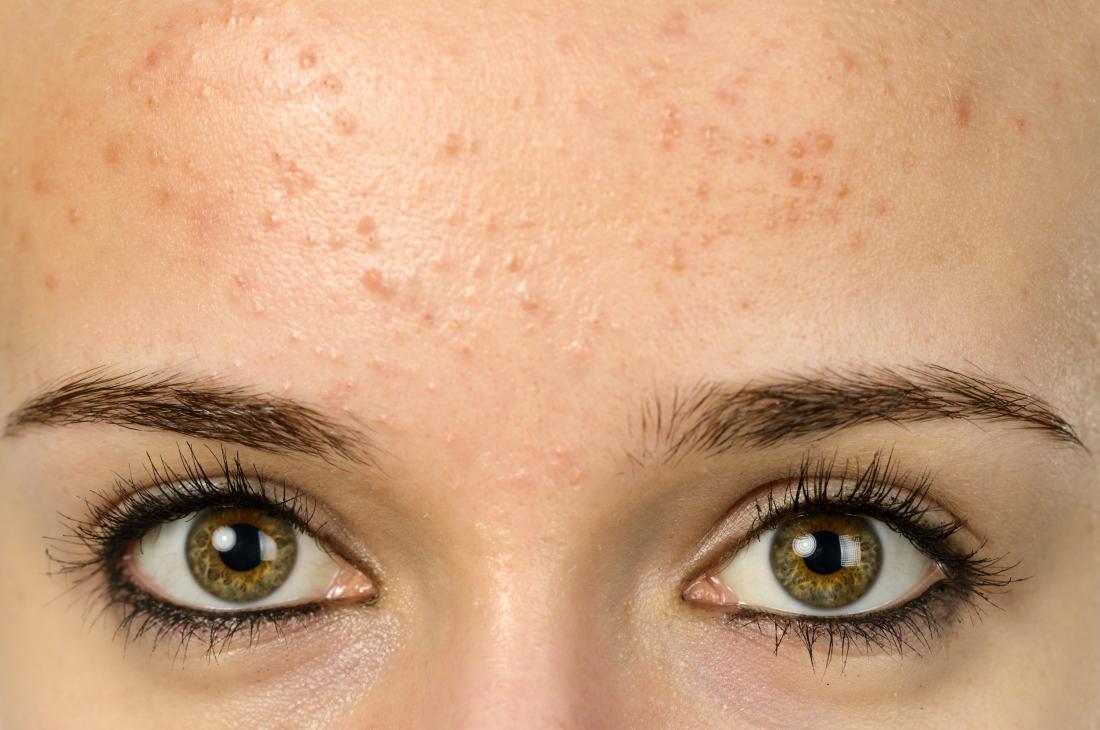When tiny glands beneath the skin’s surface become blocked, people can get forehead acne or pimples. It can be caused by hormonal changes, stress, medication, or other factors.
Acne is not dangerous, but it can be uncomfortable and may make people feel unattractive.
This article will discuss the causes of acne and how to prevent them from developing.
Reasons
Acne is a common condition in puberty due to hormonal changes.
Acne can be a chronic skin condition which can lead to these lesions:
- Whiteheads
- blackheads
- pimples
- cysts
- Nodules
Acne can occur anywhere on the body. It is most common on the arms, face, back, chest, and shoulders. Acne can appear when the tiny glands beneath the skin’s surface become blocked.
These glands are known as the sebaceous and produce an oily substance known as sebum. Too much sebum, dead skin cells, or bacteria can block these glands. This can lead to an inflammation of the glands, which can cause a pimple.
The amount of sebum produced by the glands can be affected by certain factors. This sebum can increase the chances of pimples and acne developing. These are some of the factors:
- Hormonal fluctuations. Acne is a common condition in puberty.
- Stress. Although there is some evidence that stress can cause acne outbreaks, the reasons are not clear.
- Medication. Side effects of some medications can lead to acne. Some examples include anticonvulsants and barbiturates, as well as lithium.
- Hygiene. Oily deposits and blockages can occur if you don’t wash your hair and face enough.
- Hair products. Pomade acne is a term that refers to the breakouts caused by certain hair products such as oils, gels, and waxes.
- Skin irritation. The forehead can be irritated by makeup or clothing, such as hats. Touching the forehead frequently can cause acne and further irritate the skin.
Home remedies and treatment
Depending on the severity of your acne, treatment will differ. Most people can manage their acne using over-the-counter medications (OTC).
There are many creams, lotions, and gels that can be used to treat acne. These products often contain one or more active ingredients.
- benzoyl peroxide
- salicylic acid
- retinol
- resorcinol
People can purchase many of these acne treatments online.
These treatments may work differently for different people. It is possible to find the best treatment by trial and error. Creams and lotions may be more beneficial for people with sensitive skin.
Sometimes, it can take weeks for symptoms to resolve completely. It is important to be patient when undergoing treatment. Some people may experience mild Side effects, such as skin irritation in the initial stages of treatment.
Prescription medication may be required for people suffering from more severe cases of acne. A skin specialist can assess the individual’s condition and recommend the best treatment. These may include oral medication and creams or gels that can be applied directly to the forehead.
Some prescription medications for acne might include:
- corticosteroids
- Antimicrobials
- antibiotics
- retinoids
- Combination contraceptives
Acne sufferers should not pop their pimples, as it increases the chance of infection and scarring.
You can also use home remedies to treat mild acne or to prevent further breakouts.
A warm compress applied to the forehead twice daily is one example of a home remedy. This can help to remove excess sebum from the skin and speed up recovery.
You can also try these home remedies for acne on the forehead:
- Aloe vera. Pure aloe vera oil can be applied directly to the forehead.
- Tea tree oil. Apply a few drops to your forehead using a cotton pad.
- Apple cider vinegar. Apply one-quarter of diluted apple cider vinegar to three-quarters of the water.
- Zinc. Zinc can also be taken orally as a supplement to improve skin health.
You can also mix the following ingredients to create a mask that you can wear overnight:
- Mix 2-3 teaspoons aloe vera gel and 3-4 drops tea tree oil
- Apply to the face
- Continue on for the night
- Wash off the makeup in the morning
- Repeat the nightly routine until your acne or pimples disappear.
Prevention
It is possible to prevent acne by washing your face immediately after you have finished playing.
A good standard of hygiene is key to preventing acne on the forehead. Some pimples are inevitable, especially in puberty. However, regular washing will reduce the chance of an outbreak.
You can also prevent acne by following these tips:
- Avoid wearing tight-fitting hats and clothing that cover your forehead.
- Avoid using harsh skin products on your forehead
- Face scrubs can be used to deeply cleanse the skin
- Avoid touching, scratching, or picking pimples on your forehead
- Before you go to bed, remove any makeup
- Wash your forehead immediately after any sport or activity that results in sweat buildup
- Throughout the day, wash your hands frequently
- Avoid prolonged sun exposure
Outlook
People can have acne on their foreheads, especially if they are going through puberty. Poor hygiene, stress, skin irritation, makeup, and poor hygiene can all contribute to acne.
Milder cases of acne can be treated at home using a variety of OTC creams, soaps, and lotions. If you have more severe acne, your doctor may be able to prescribe stronger or more effective medication.

